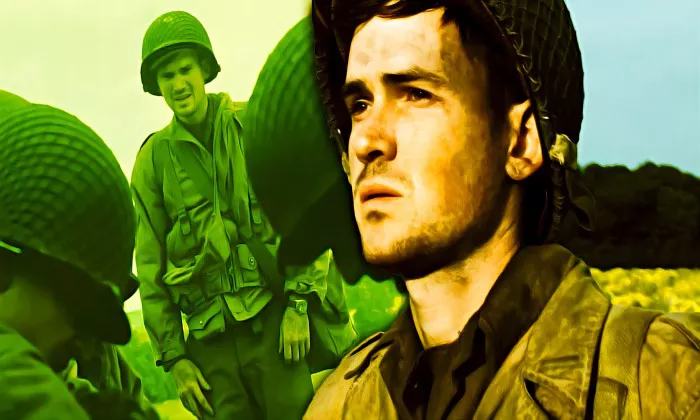Who is Upham in Saving Private Ryan?
In Steven Spielberg’s epic war drama “Saving Private Ryan,” Timothy E. Upham, played by actor Jeremy Davies, is a central character among the ensemble cast. Upham is introduced as a typist in the 29th Infantry Division, tasked with documenting the experiences of soldiers during World War II. Despite his lack of combat experience, he finds himself thrust into the brutal reality of war when he is assigned to Captain Miller’s squad as an interpreter.
Throughout the film, Upham serves as a lens through which the audience witnesses the psychological toll of war on an inexperienced and sensitive individual. He struggles to reconcile the horrors he witnesses with his own moral compass, often grappling with feelings of fear, guilt, and inadequacy amidst the chaos of battle.
Why does Upham shoot the German soldier?
One of the most pivotal moments involving Upham occurs during a scene where he encounters a captured German soldier, Steamboat Willie. The squad debates what to do with the prisoner, knowing that if they release him, he could potentially return with reinforcements. Upham, who has been visibly shaken by the brutality of war and haunted by the deaths of his comrades, initially argues for treating the prisoner with humanity and abiding by the rules of war.
However, as tensions escalate and the squad’s resolve is tested, Upham’s internal conflict reaches a breaking point. Despite his earlier protests, Upham ultimately shoots Steamboat Willie, fearing the consequences of allowing the German soldier to live. This act of desperation underscores Upham’s struggle to reconcile his own principles with the harsh realities of warfare. In that moment, Upham is not just grappling with the enemy soldier before him but also battling his own inner demons and the moral ambiguity of war.
Was Upham a coward in Saving Private Ryan?
The question of whether Upham can be labeled as a coward in “Saving Private Ryan” is complex and subjective, as it depends on one’s interpretation of his actions and the circumstances in which they occur.
On one hand, Upham’s initial reluctance to engage in combat and his moments of hesitation during critical situations may be interpreted as signs of cowardice. His lack of combat experience and the trauma he experiences on the battlefield undoubtedly contribute to his feelings of fear and inadequacy. However, it is essential to consider the broader context in which Upham’s character arc unfolds.
Upham’s journey in the film is marked by a gradual evolution from a timid and uncertain bystander to a character forced to confront the harsh realities of war. His decision to shoot Steamboat Willie, while motivated by fear and desperation, also reflects a pivotal moment of agency and moral ambiguity. Upham’s actions may not align with traditional notions of heroism, but they are a testament to the complexities of human nature under duress.
Furthermore, Upham’s role as a non-combatant thrust into the front lines highlights the diverse experiences of individuals during wartime. Not every soldier fits the archetype of the fearless warrior, and Upham’s character serves as a reminder of the psychological toll that war can inflict on individuals regardless of their bravery or cowardice.
In conclusion, Upham’s character in “Saving Private Ryan” defies easy categorization as either a coward or a hero. Instead, he represents the nuanced and multifaceted nature of human behavior in the crucible of war. Upham’s journey serves as a poignant exploration of morality, fear, and resilience in the face of unimaginable adversity, leaving audiences with a profound reflection on the human cost of conflict.
Related Topics:
Unraveling the Truth Behind “Saving Private Ryan (1998)”
An Analysis of Captain Miller’s Decision in “Saving Private Ryan”
Is Nicolas cage in Expendables 3

